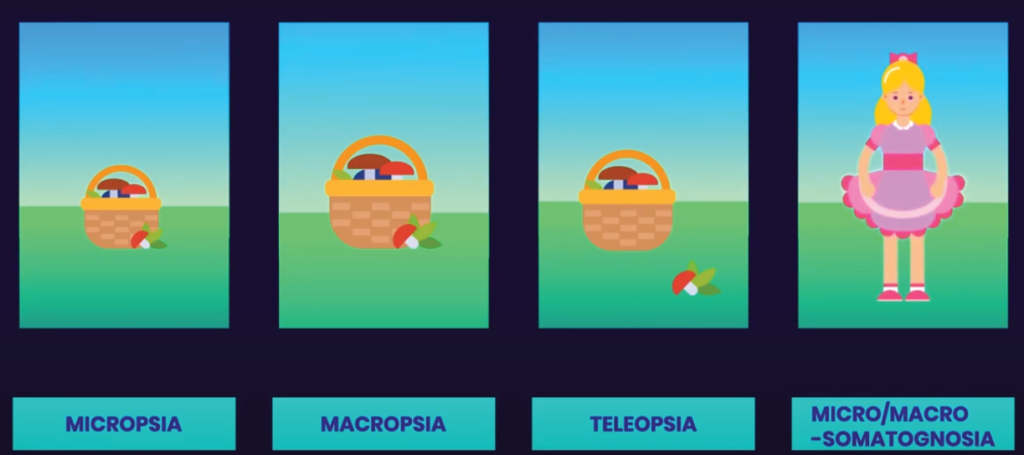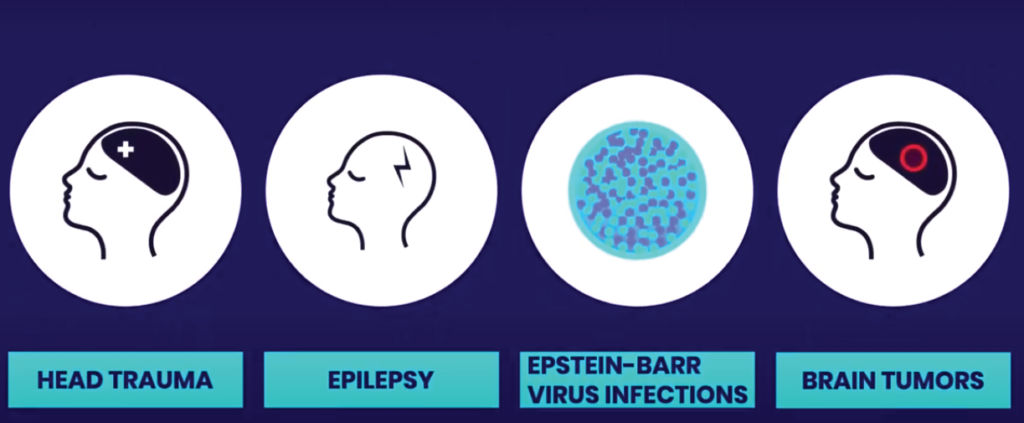In the famous 19th-century novel Alice’s Adventures in Wonderland, Alice’s size change constantly. The world around her is sometimes too small and other times too enormous. There’s a neuropsychiatric disorder named Alice in Wonderland Syndrome which can give rise to similar experiences. Read this article to know more.
Eyes, Ears, Nose, Tongue, and Skin are our five main sensory organs. They send information to the brain, and the brain ultimately creates experiences based on that information. Brain’s ability to create experiences from sensory information is called perception. If the neurons of the brain are malfunctioning, these perceptions can be distorted and give rise to wild experiences.
First, let’s talk about the distortion of visual perception.

- If the objects and the world around you appear smaller, it is called micropsia.
- In macropsia, the objects appear to be larger.
- Teleopsia is when the objects appearing to be further away than they are.
- And micropsia is when the objects appear closer.
- In micro or macro-somatognosia, the patient’s body size is felt as small or large.
Similarly, distortions can occur with the perception of any sensory modality. Sometimes the voices of people around you could be heard as very loud and close, or faint and far.
A sense of time can also be distorted in these patients. Time seems to pass too slowly for these patients.
Please don’t confuse these experiences with hallucinations.
- A hallucinating patient experiences things that aren’t there.
- But these patients experience only the things that exist. But their brain misinterprets them.
- This misinterpretation of sensory information is called an illusion, rather than a hallucination.
The commonest cause of Alice in Wonderland Syndrome is Migraines. Lewis Carroll, the author of the novel Alice’s Adventures in Wonderland, had also suffered from migraines. In classical migraine, headache is preceded by sensory disturbances called an aura. Usually, they see minor visual disturbances like flashes of light or zigzag lines. But in rare cases, an aura can present as illusions and give rise to Alice in Wonderland Syndrome.

Head Trauma, Epilepsy, Epstein-Barr virus infections and Brain tumors can also cause this rare syndrome.
Around 65% of the cases are reported in children. Most of them grow out of this condition as they grow older. But one-third of them continue to have symptoms, often associated with migraines.
The diagnosis is entirely clinical. The treatment for this syndrome is the management of the underlying cause.
